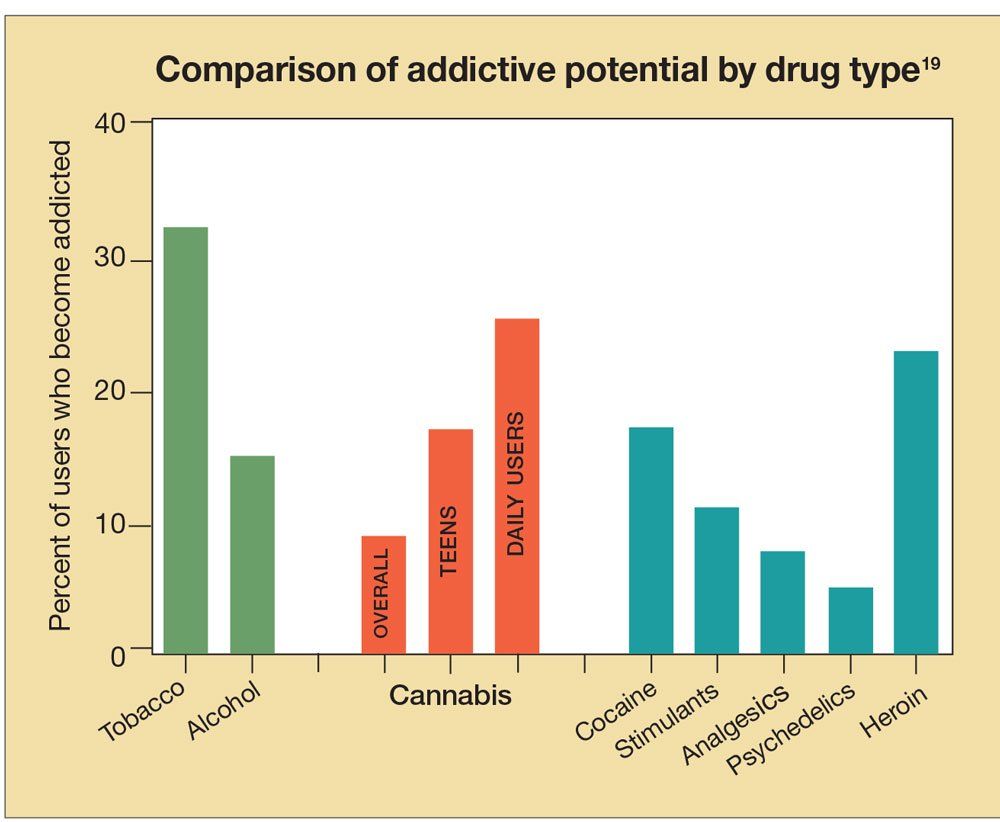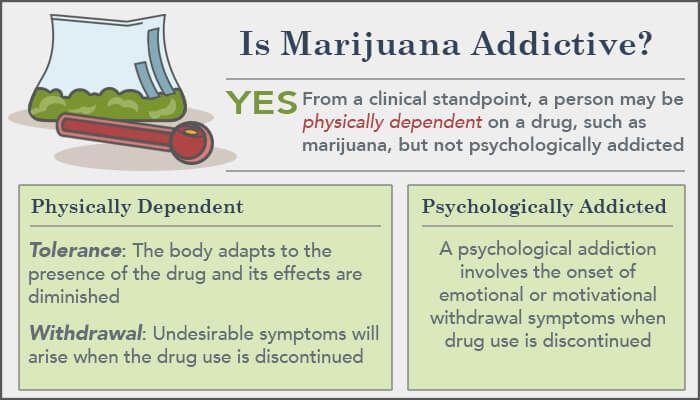Despite relatively widespread perceptions that would suggest otherwise frequent marijuana use is associated with the development of physiological dependence a distinct withdrawal syndrome and addiction. Signs of addiction include using more than intended neglecting responsibilities in favor of marijuana use tolerance and withdrawal symptoms.
 Cannabis Use In Young Adults Challenges During The Transition To Adulthood
Cannabis Use In Young Adults Challenges During The Transition To Adulthood
However daily long-term use of marijuana can.

Is smoking weed addictive. Withdrawal symptoms include anxiety paranoia sleeplessness loss of appetite grouchiness and cravings. The National Institute on Drug Abuse or NIH says yes marijuana can be addictive. A s marijuana goes mainstream there is a persistent belief that its not addictive.
A reported 90 percent of marijuana addicts also suffer from a psychiatric condition or other addictions which takes us back to the newest research. That is in part because addictive behavior emerges more slowly than with substances such as opioids and. Its possible to get addicted to cannabis especially people who are considered regular or heavy users.
Research shows that somewhere between 9 and 30 of people who use marijuana will become addicted to it. Long-term use of marijuana has been proven to have addictive potential. Recent data suggest that 30 of those who use marijuana may have some degree of marijuana use disorder.
The marijuana smoke vs. It is estimated that 32 of tobacco users will become addicted 23 of heroin users 17 of cocaine users and 15 of alcohol users. It can be addictive and it may be harmful to some peoples health.
Some people who use marijuana end up with marijuana use disorder which we touched on in the intro. They do not lose control of its use. Heres what can happen when you use marijuana.
Compared to other substances marijuana is not very addicting. For some marijuana use poses a substantial likelihood of developing an addiction. Marijuana use can lead to addiction in the same way other addictive drugs do by acting on the brains reward centers.
Marijuana has mind-altering compounds that affect both your brain and body. Dopamine causes the euphoric sensations we recognize as the high. Marijuana use can lead to the development of problem use known as a marijuana use disorder which takes the form of addiction in severe cases.
The National Institute on Drug Abuse recently released data that suggests that 30 percent of those who use. The majority of pot smokers do not develop a marijuana addiction but some smokers do develop all the symptoms of an actual addiction after chronic marijuana use. If regular users stop taking cannabis they may get withdrawal symptoms such as feeling moody and irritable feeling sick difficulty sleeping difficulty eating sweating shaking and diarrhoea.
People who are addicted to marijuana may also be at a higher risk of other negative consequences of using the drug such as problems with attention memory and learning. However research appears to show that while marijuana smoking is still dangerous it is less so than smoking tobacco. When a person smokes pot tetrahydrocannabinol THC the active ingredient in marijuana triggers a release of the feel-good chemical dopamine in the brain.
Tobacco smoke issue seems irrelevant because smoking in any form is bad. Using marijuana even when it is known that it causes problems fulfilling everyday jobs at home school or work. Marijuana may be especially addictive if a person uses it during childhood or adolescence.
In most cases first-time users will not become addicted and even occasional users who smoke pot recreationally may not become addicted to the drug. They generally use the amount they want to use and when they want to use it. Yes marijuana addiction is linked to depression.
1 Most marijuana users never come close to being addicted to weed. Withdrawal symptoms when someone has stopped using marijuana are also a reliable indicator of potential marijuana addiction. According to NIDA approximately 30 percent of marijuana users may have some sort of marijuana use disorder.
According to surveys of students about 1 in 17 high school seniors reported smoking marijuana daily in. This disorder causes a feeling of dependence on the drug including withdrawal symptoms. 18 People who begin using marijuana before the age of 18 are four to seven times more likely to develop a marijuana use.
Its estimated that between 10 and 30 percent of individuals who. When individuals become psychologically addicted to marijuana they will make the drug a main priority in their day-to-day lives possibly to the exclusion of important work family school andor personal obligations. The biggest advantage marijuana has over tobacco though is that people who use it medicinally or recreationally where allowed.
The behavioral signs of marijuana abuse can be the greatest tipoff to the existence of the problem.
